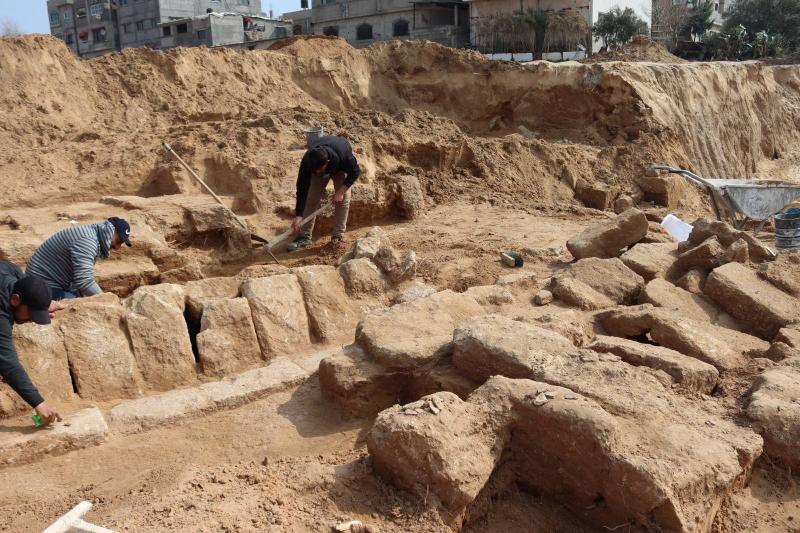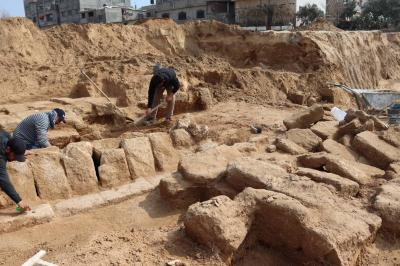The tense reality in the Gaza Strip, with the increasing number of fatalities due to the Israeli military assault, has transformed the life of Ibrahim Ahmed from building houses to digging graves. After being displaced from his home, like most of Gaza's 2.3 million residents, Ahmed spends his days at the Tal al-Sultan cemetery in Rafah, where he prepares rows of graves in the sandy ground and marks them with concrete blocks due to the lack of headstones.
Ahmed said, "As a human being, I feel burdened by the fact that I'm coming to work, transitioning from building houses and villas to digging graves." He added, "Before this, in my work in construction, it was tiring, true, but when you go home, you feel accomplished as you created something new. You work on a building every day, each day is a different decoration; it gives you a sense of satisfaction. But now, this job is not my profession; I was forced to consider it my profession because there's no alternative."
He continued, "You come in the morning to the cemetery, you work, you dig, you see many people, but the faces are all the same, the suffering is the same. It puts you in a state of frustration." Ahmed mentioned, "We have two mass graves; nearly 80 martyrs were buried here and another area has 100 martyrs. I hope this work stops, so we can go back to building in this country and restore it."
The war erupted on October 7, when militants from the Palestinian Islamic Resistance Movement (Hamas), which controls the Gaza Strip, attacked southern Israel, resulting in the deaths of 1,200 people and the capture of 253 hostages according to Israeli authorities. Israel vowed to destroy Hamas and responded with aerial and ground attacks that resulted in a significant destruction of the Palestinian territory.




